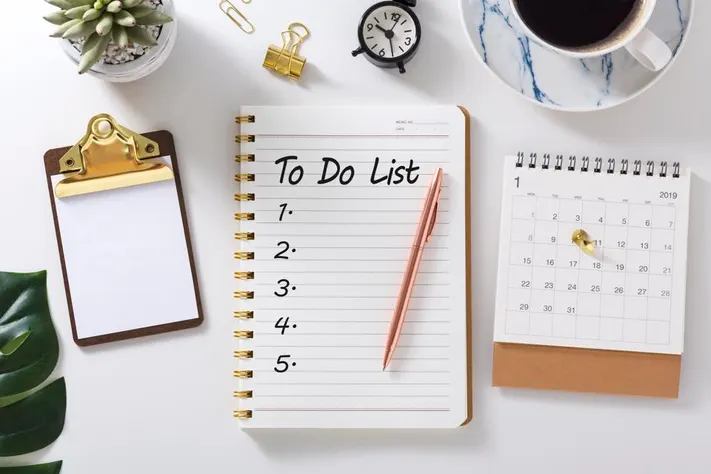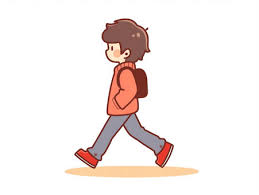Useful Strategies for People With ADHD
Researchers and psychologists have developed techniques to help people with ADHD be more productive. Here are some that I’ve found most useful in my clinical practice. Keep in mind throughout your life you’ve probably learnt a lot about how your mind works, what distracts you and what you can do to keep focused. This knowledge is personal to you, and therefore more relevant than anything on this list. Keep experiementing, see what works, and get rid of what doesn’t.
Where You Work Matters

If you have ADHD, spend some time thinking about where you work most productively. Who is around you, the noise level, and how accessible distractions are can have a massive impact on how much work you get done. Generally, the more difficult the task, the more important these things are. Maybe you’re ok doing emails in a busy office, but for writing a report you need complete silence. Or reading a textbook and taking notes is ok at home, but when it comes to writing an essay you need to go to the library.
Changing the Setting
If you find yourself struggling to concentrate, consider changing where you’re working. If you can’t physically go somewhere else, maybe there’s some changes you can make like putting on earphones or leaving your phone in the next room. Sometimes even if you’ve worked well there in the past a change can help you refocus. Working in the same place day after day can feel stale, and a new setting can help you regain motivation.
To Do Lists

Finishing one task and starting another can be difficult for people with ADHD. Often in those moments they lose focus and end up doing something else without realising. Work can also sometimes feel directionless, as if they’re randomly jumping from task to task without a plan. Spending 5-10 minutes every morning writing a to do list helps address these problems.
Benefits of to-do lists:
- Gives you a clearer idea of your goals for the day.
- Forces you to spend some time planning how you want to spend your time – something that people with ADHD can neglect.
- It’s more likely you will spend time focusing on what is important rather than just what’s in front of you.
- When you start to feel unsure what you should be doing you can refer back to your to do list. Over time this will become a habit.
If you have tried to do lists in the past but didn’t like them, it is possible you had these issues:
- List was too long. A list that makes you anxious whenever you look at it is too long. Similarly, if you never get your to do list done in a day it’s also too long. Generally, a list of 4 to 5 things works for most people, but experiment to see what works for you.
- List was vague “Work more on X” is a bad entry for a to do list. If the task is too big to get done in one day, see if you can come up with a smaller goal (start the presentation, read one chapter, get together everything I need etc).
- Excessive guilt If every time you don’t finish your to-do list you feel guilty you will probably stop writing them. Guilt and shame can often get in the way of managing ADHD symptoms more effectively and is often a focus of my clinical work for clients with ADHD.
Delaying Distractions
People with ADHD tend to jump from task to task, leaving things unfinished. This usually develops as a way of coping with forgetfulness. If you tend to forget things, doing them as soon as you remember makes sense! The problem is sometimes constantly jumping to new tasks means you never actually finish anything. This strategy helps address this.
- Decide to work on something for a set amount of time (this shouldn’t be too long, 15 to 20 minutes generally is a good start)
- Work with a piece of paper next to you.
- When you get the urge to do something else, write it down.
- At the end of the time period, do whatever is on the piece of paper (if you still want to).
Keep A Calendar
Everyone I’ve ever met who has ADHD and stays organised keeps a detailed calendar. Your calendar should have all your engagements, both work and personal, and may need to also include travel times Keeping a calendar can feel cumbersome at first, but after you get into the habit can make a massive difference.
Dealing With Procrastination
If you notice you are procrastinating, first stop and ask yourself why. There is probably something difficult or unclear about what you’re trying to do that you haven’t acknowledged. Spending time figuring out what it is and how to address it can be a great start. Here are some other practical things that can help.
Breaking down the task:
Instead of aiming to finish the task in one setting, think about a small intermediate goal you could accomplish in an hour’s work. If that still seems like something you would put off, make it half an hour, or even 15 minutes. Once you’ve made a start returning to the task later will be easier.
Rewarding yourself.
If the task is particularly unpleasant, think of a reward you can give yourself when you’re done. Some people with ADHD don’t find rewards useful, as they end up doing the reward before the task. While it’s possible rewards don’t work for you, you also might just need to keep experiementing until you find something that works. In most cases experiences (a nice walk, dinner with a friend etc) are better rewards than food/buying things. Interestingly, some people with ADHD find it is helpful to give themselves the reward before the task they are putting off. It might sound counter intuitive, but they find it helps get them into a more relaxed and motivated state.
Taking Breaks

If you tell someone with ADHD to sit down and work for eight hours they probably won’t get much done. People without ADHD usually can’t focus for eight straight hours either, but the idea is generally less scary for them. To tackle an eight-hour workday effectively, you need to take regular breaks. How often the breaks are, how long they last and what you do during them is up to you. Experiment until you find a system then works, then change it if it starts getting stale.
Getting Help
Implementing strategies like this by yourself is hard. Studies that have shown techniques like these are effective typically also included some sort of therapy or individual coaching as well to help people make these changes effectively. If you are interested in seeing me for therapy, you can book in a free 15 minute consultation call to see if I would be the right fit for you.